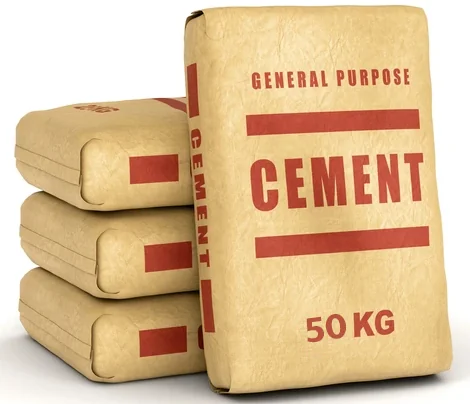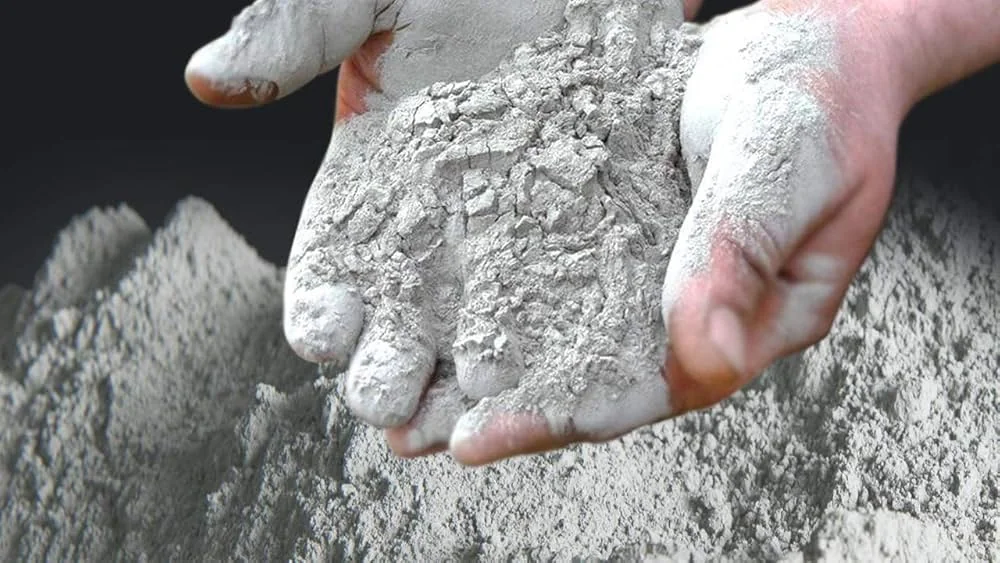CEMENTING STANDARDS: A COMPREHENSIVE GUIDE TO BIS CERTIFICATION OF VARIOUS CEMENT TYPES WITH
INTRODUCTION
Cement plays an indispensable role in shaping the modern built environment, serving as the foundational material in nearly every type of construction—from residential buildings and bridges to dams, tunnels, and industrial plants. However, a one-size-fits-all approach does not apply when it comes to cement. Each construction scenario brings unique environmental, structural, and performance demands, leading to the development of specialized cement types engineered for specific conditions.
For example:
Sulphate Resisting Portland Cement (IS 12330) is critical in marine and sewage environments where high sulphate concentrations can degrade conventional cement.
Low Heat Portland Cement (IS 12600) is used in mass concrete pours like dams to control thermal stress and avoid cracking.
Rapid Hardening Cement (IS 8041) offers high early strength for time-sensitive projects.
White Cement (IS 8042) is valued for aesthetic applications in architecture.
In industrial and extreme environments:
High Alumina Cement (IS 6452) and High Alumina Refractory Cement (IS 15895) are used for their superior chemical and thermal resistance.
Oil Well Cement (IS 8229) is essential for deep drilling under high pressure and temperature.
Emerging formulations like Composite Cement (IS 16415) and Microfine OPC (IS 16993) reflect the industry’s emphasis on sustainability, durability, and precision construction.
| Sl. No. | Cement Type | Indian Standard (IS) | Primary Use / Feature |
|---|---|---|---|
| 1 | Ordinary Portland Cement (OPC) | IS 269 | General construction; available in grades 33, 43, 53 |
| 2 | Sulphate Resisting Portland Cement | IS 12330 | Marine/sewage structures; high sulphate resistance |
| 3 | Low Heat Portland Cement | IS 12600 | Mass concrete (e.g., dams); reduces heat of hydration |
| 4 | Portland Pozzolana Cement (Fly Ash Based) | IS 1489 (Part 1) | Improved durability; infrastructure and residential use |
| 5 | Portland Pozzolana Cement (Calcined Clay Based) | IS 1489 (Part 2) | Long-term strength using calcined clay |
| 6 | Portland Slag Cement | IS 455 | High durability; resistant to chemical attacks |
| 7 | Masonry Cement | IS 3466 | Brick/block masonry; workability and water retention |
| 8 | High Alumina Cement (Structural Use) | IS 6452 | Aggressive environments; rapid strength gain |
| 9 | Super Sulphated Cement | IS 6909 | Chemical resistance; sewage works and marine structures |
| 10 | Rapid Hardening Portland Cement | IS 8041 | Fast setting; time-critical construction projects |
| 11 | White Portland Cement | IS 8042 | Aesthetic and architectural applications |
| 12 | Hydrophobic Portland Cement | IS 8043 | Moisture-resistant; suitable for storage and humid environments |
| 13 | Oil Well Cement | IS 8229 | High-pressure and high- temperature oil well applications |
| 14 | Composite Cement | IS 16415:2015 | Eco-efficient blend of clinker, slag, and fly ash |
| 15 | Microfine OPC | IS 16993:2018 | Micro-tunneling, grouting; ultra- fine particles for precision work |
| 16 | High Alumina Refractory Cement | IS 15895:2018 | Kilns and furnaces; high thermal resistance |
Given the technical complexity and variety of these cement types, ensuring conformity to safety and performance standards is critical. The Bureau of Indian Standards (BIS) mandates certification for each type under its respective Indian Standard (IS). This process involves rigorous testing, factory audits, and surveillance.
CEMENT QUALITY CONTROL ORDER (QCO), 2003 – REGULATORY FRAMEWORK
Issued via S.O. 191(E) on February 17, 2003, under the Bureau of Indian Standards Act, 1986, the Cement (Quality Control) Order, 2003 mandates that all cement manufactured, stored for sale, sold, or distributed in India must:
- Conform to the specified Indian Standards (IS)
- Bear the Standard Mark (ISI Mark) from BIS
Key Provisions of the QCO:
Mandatory BIS Licensing: No cement can be sold without BIS certification.
Production Restrictions: Cement not meeting standards must be destroyed within one month.
Exemptions: Temporary exemptions may be granted (e.g., for exports under foreign specifications).
Inspection and Enforcement: Authorities can seize, test, and inspect cement and related documentation.
Certification Timeline: Manufacturers must apply for BIS certification before starting production or within 45 days of the order.
INDIAN STANDARDS (IS) FOR CEMENT TYPES
Below is a consolidated reference of BIS standards for the major types of cement that require certification:
BIS CERTIFICATION PROCESS FOR CEMENT
The BIS certification process ensures every cement type conforms to its respective standard. This follows the conformity assessment scheme under the BIS Act, 2016.
Key Steps:
Application Submission: The manufacturer submits detailed product and factory information.
Product Testing: Samples are drawn and tested in BIS-approved labs.
Factory Audit: BIS inspectors verify quality control systems, traceability, and test facilities.
Grant of License: If requirements are met, BIS grants the license to use the ISI mark.
Surveillance and Renewal: Regular inspections and sample testing ensure continued compliance.
HOW OMEGA QMS PVT. LTD. SUPPORTS MANUFACTURERS
Omega QMS Pvt. Ltd. is a leading consultancy that guides manufacturers through every stage of BIS certification for cement. With deep expertise in regulatory compliance and quality management systems, Omega QMS ensures a smooth, efficient, and successful certification journey.
Services Offered:
Initial Gap Assessment: Review of current manufacturing and quality practices vs. BIS requirements
Technical Documentation: Complete preparation of required forms, manuals, and compliance reports
Mock Factory Audits: Prepares the factory for BIS inspections with trial runs and corrective advice
Liaison with BIS: Manages the entire communication, application, and scheduling process with BIS
Post-Certification Support: Assists with surveillance audits, renewals, and quality system updates
With Omega QMS as a partner, manufacturers can focus on production while outsourcing the complexities of certification to a capable team.
CONCLUSION
BIS certification is more than just a regulatory formality—it’s a mark of trust, safety, and quality in India’s construction ecosystem. With a wide spectrum of cement types tailored to different engineering needs, aligning with the appropriate Indian Standards is critical.
Whether it’s massive infrastructure projects, marine structures, oil exploration, or precision grouting, certified cement ensures consistent performance and long-term durability. Omega QMS Pvt. Ltd. stands out as a strategic ally, helping cement manufacturers meet compliance requirements and compete confidently in both domestic and global markets.

OMEGA QMS PVT. LTD.
908-909, Hemkunt House, Rajendra Place, New Delhi-110008, India
Phone: 011-41413939(100 lines), Email: info@globalomega.com,
sales@globalomega.com, mktg@globalomega.com
